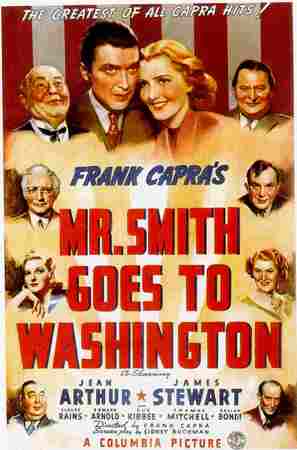Here we are, once again: The shadow of the Civil War -- about 70 years in the future -- keeps popping up as we make our way through the Federalist Papers. Why? Because Alexander Hamilton, John Jay and James Madison keep making the case that the United States
under the Articles of Confederation is prone to such a war.
Hamilton revisits this theme in
Federalist 16, suggesting that the states under the Articles have so much latitude to act on their own -- instead of falling in line under a central government -- that conflict is more likely to arise between the states. "The first war of this kind," he warns, "would probably terminate in a dissolution of the Union."
There's another possibility, though, as Hamilton admits: If one state went its own way in defiance of the national government, the other states would probably do likewise -- rather than make a big deal and incite war. "And the guilt of all," Hamilton writes, " would become the security of all."
And I admit: I'm having a hard time finding a major flaw in that arrangement. It appears there are two possible ways of insuring against a civil war: building a central government with the power to keep the states in line, or giving the states the freedom to act on their own and not impose laws and rules on each other.
Indeed, the antifederalists argue that building and empowering a centralized government will make a civil war more likely -- and more devastating when it occurs. "A Farmer" is one of those who made the argument.
Whether national government will be productive of internal peace, is too uncertain to admit of decided opinion. I only hazard a conjecture when I say, that our state disputes, in a confederacy, would be disputes of levity and passion, which would subside before injury. The people being free, government having no right to them, but they to government, they would separate and divide as interest or inclination prompted-as they do at this day, and always have done, in Switzerland. In a national government, unless cautiously and fortunately administered, the disputes will be the deep-rooted differences of interest, where part of the empire must be injured by the operation of general law; and then should the sword of government be once drawn (which Heaven avert) I fear it will not be sheathed, until we have waded through that series of desolation, which France, Spain, and the other great kingdoms of the world have suffered, in order to bring so many separate States into uniformity, of government and law; in which event the legislative power can only be entrusted to one man (as it is with them) who can have no local attachments, partial interests, or private views to gratify.
That kind of
sounds like what happened, doesn't it? But Hamilton argues for big gubmint. Get this:
The government of the Union, like that of each State, must be able to address itself immediately to the hopes and fears of individuals; and to attract to its support those passions which have the strongest influence upon the human heart. It must, in short, possess all the means, and have aright to resort to all the methods, of executing the powers with which it is intrusted, that are possessed and exercised by the government of the particular States.
There's a lot of talk here about pretty mushy concepts like "hopes" and fears" and "the human heart." It sounds, in fact, almost
Obama-like. Hamilton isn't really talking about limited government staying out of the way of citizens, who are then free to make their own way by dint of their rugged individualism. He's talking about using the power of the state in the service of citizen self-actualization. When Democrats talk like this these days, my conservative friends react with horror and contempt. Am I missing something?
Don't worry, Hamilton says in
Federalist 15. The federal government under the U.S. Constitution will be too limited to really infringe on the people, or even to displace state governments. And it's here that I confess: My conservative friends are probably right when they say Hamilton
et al could never have imagined the huge federal government we have today. Here's Hamilton talking about those limitations:
I confess I am at a loss to discover what temptation the persons intrusted with the administration of the general government could ever feel to divest the States of the authorities of that description. The regulation of the mere domestic police of a State appears to me to hold out slender allurements to ambition. Commerce, finance, negotiation, and war seem to comprehend all the objects which have charms for minds governed by that passion; and all the powers necessary to those objects ought, in the first instance, to be lodged in the national depository. The administration of private justice between the citizens of the same State, the supervision of agriculture and of other concerns of a similar nature, all those things, in short, which are proper to be provided for by local legislation, can never be desirable cares of a general jurisdiction.
Mr. Hamilton: I give you the Department of Agriculture -- which has done more to affect why, how and what we grow and eat than any other institution in human history, perhaps. So there's that.
He keeps going.
There is one transcendant advantage belonging to the province of the State governments, which alone suffices to place the matter in a clear and satisfactory light, -- I mean the ordinary administration of criminal and civil justice. ... This great cement of society, which will diffuse itself almost wholly through the channels of the particular governments, independent of all other causes of influence, would insure them so decided an empire over their respective citizens as to render them at all times a complete counterpoise, and, not unfrequently, dangerous rivals to the power of the Union.
Mr. Hamilton, I give you the FBI. Bank robberies, no matter how third-rate and niggling, aren't really a local matter anymore -- they're prosecuted in federal courts. Just last month, the Supreme Court ruled that federal officials could civilly commit sex offenders who've served out their criminal prison sentences -- a role that used to be exclusively reserved to the states. And that ruling came from a
conservative Supreme Court -- based on the so-called "necessary and proper clause" of the Constitution that gives Congress the power to make any law it needs to carry out its duties.
And hoo boy: The Antifederalists saw that one coming. Here's "Brutus," writing in Antifederalist 17.
The legislature of the United States are vested with the great and uncontrollable powers of laying and collecting taxes, duties, imposts, and excises; of regulating trade, raising and supporting armies, organizing, arming, and disciplining the militia, instituting courts, and other general powers; and are by this clause invested with the power of making all laws, proper and necessary, for carrying all these into execution; and they may so exercise this power as entirely to annihilate all the State governments, and reduce this country to one single government. And if they may do it, it is pretty certain they will; for it will be found that the power retained by individual States, small as it is, will be a clog upon the wheels of the government of the United States; the latter, therefore, will be naturally inclined to remove it out of the way.
Now it's not true that state governments have been "annihilated." But it is true that the trend has been that federal power has increased and state power has contracted. Which brings us to Hamilton's most flatly untrue statement -- though, perhaps, he couldn't have known it at the time.
It will always be far more easy for the State governments to encroach upon the national authorities than for the national government to encroach upon the State authorities.
It didn't really work out that way, did it?
Now, I don't think that's entirely bad. But if I'm honest here, I've got to say, the Antifederalists were generally right and the Federalists were generally wrong: The government being built under the new Constitution
did morph into something big and powerful and giant, reaching into many areas of the lives of its citizens. Maybe that growth is a distortion of the Founder's vision -- probably, to some extent, it is -- but Hamilton's pretty blase about the possibilities. "It can't happen here," is what he seems to be saying. But it did.
Federalists 18, 19 and 20 also concern themselves, ostensibly, with the insufficiency of the Articles of Confederation -- but rely mostly on a
verrrry dry reading of history from throughout the ancient world. I'm not familiar enough with Greek or German or Dutch history to judge the interpretations offered by Hamilton and Madison here, so I won't try.
But now I'm faced with a question: Will reading the Federalist and Antifederalist papers turn me into a libertarian weirdo? It's a possibility!









.jpg)









